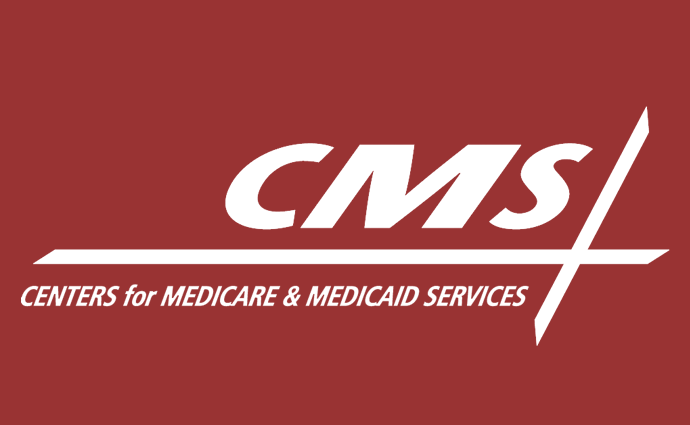CMS Boosting Audits to Combat Medicaid Fraud, Improper Payments
CMS plans to increase audits and optimize data to improve Medicaid program integrity and prevent Medicaid fraud and improper payments.

Source: Xtelligent Media
- In efforts to prevent Medicaid fraud and improper payments, CMS plans to increase the number of audits in the public healthcare program and optimize state-provided claims and provider data, according to a recent announcement from the federal agency.
With Medicaid spending rapidly increasing from $456 billion in 2013 to an estimated $576 billion in 2016, CMS decided that now is the time to strengthen the relationship between the federal government and states to ensure Medicaid program integrity.
To do this, the federal agency plans to implement stronger audit functions, improved oversight of state contracts with private insurance companies, increased beneficiary eligibility oversight, and stricter enforcement of state compliance with federal rules.
“The initiatives released today are essential to help strengthen and preserve the foundation of the program for the millions of Americans who depend on Medicaid’s safety net. With historic growth in Medicaid comes an urgent federal responsibility to ensure sound fiscal stewardship and oversight of the program,” said CMS Administrator Seema Verma. “These initiatives are the vital steps necessary to respond to Medicaid’s evolving landscape and fulfill our responsibility to beneficiaries and taxpayers.”
Specifically, CMS highlighted three new initiatives to prevent Medicaid fraud and improper payments.
First, the federal agency plans to improve Medicaid program integrity through audits of state claims for federal match funds and medical loss ratios.
Some states will undergo audits based on the amount spent on clinical services and quality improvement activities versus administration and profit. The medical loss ratio audits will also involve reviewing a state’s rate setting.
CMS intends for the audits to address behaviors that have previously harmed Medicaid’s program integrity, as well as problems identified by the Government Accountability Office (GAO) and Office of Inspector General (OIG).
The GAO recently found that HHS made approximately $90 billion in improper payments to the Medicaid and Medicare programs in 2017, and suggested that the federal department update their audit protocols to address the growing issue.
Second, CMS will conduct new audits of state beneficiary eligibility determinations. The federal agency intends to target high-risk states according to OIG standards and assess how they determine which populations are eligible for Medicaid benefits.
The audits will also evaluate the impact Medicaid expansions have had on program integrity, as well as the effect of the enhanced federal match rate on state eligibility policy.
The new initiative to combat Medicaid fraud and improper payments could also bring potential disallowances, CMS reported. The federal agency currently has the authority to issue disallowances to states based on findings from the Payment Error Rate Measurement (PERM) program in 2022.
The PERM program measures Medicaid and Children’s Health Insurance Program (CHIP) improper payments on a rolling three-year cycle. The program also generates national and state-specific Medicaid improper payment rates.
Finally, CMS announced that its plans to improve claims and provider data submitted by states.
CMS reported that every state plus Washington DC and Puerto Rico is now submitting comprehensive data to CMS. In light of this milestone, the federal agency wants to validate the quality and completeness of the data to improve Medicaid eligibility and payment information.
Advanced analytics and other health IT tools will be key to optimizing the state-provided data to maximize its potential use for program integrity improvements, the announcement stated.
In addition to the major three new initiatives, the federal agency also announced plans to develop or implement the following to improve program integrity:
- Share the federal agency’s knowledge gleaned from processing and analyzing large, complex Medicare datasets with states to help them apply algorithms and insights to their own Medicaid claims data
- Offer provider screening on behalf of states on an opt-in basis
- Improve data sharing and collaboration between CMS and states, such as giving states access to the Social Security Administration’s Death Master File to support provider enrollment
- Publicly report state performance on the Medicaid scorecard, which will soon include state program integrity performance measures
- Educate Medicaid providers to reduce improper payments and medical billing
The new initiatives will build on ongoing efforts from CMS to enhance Medicaid program integrity, Verma explained.
“As we give states the flexibility they need to make Medicaid work best in their communities, integrity and oversight must be at the forefront of our role,” she stated. “Beneficiaries depend on Medicaid and CMS is accountable for the program’s long-term viability. As today’s initiatives show, we will use the tools we have to hold states accountable as we work with them to keep Medicaid sound and safeguarded for beneficiaries.”
